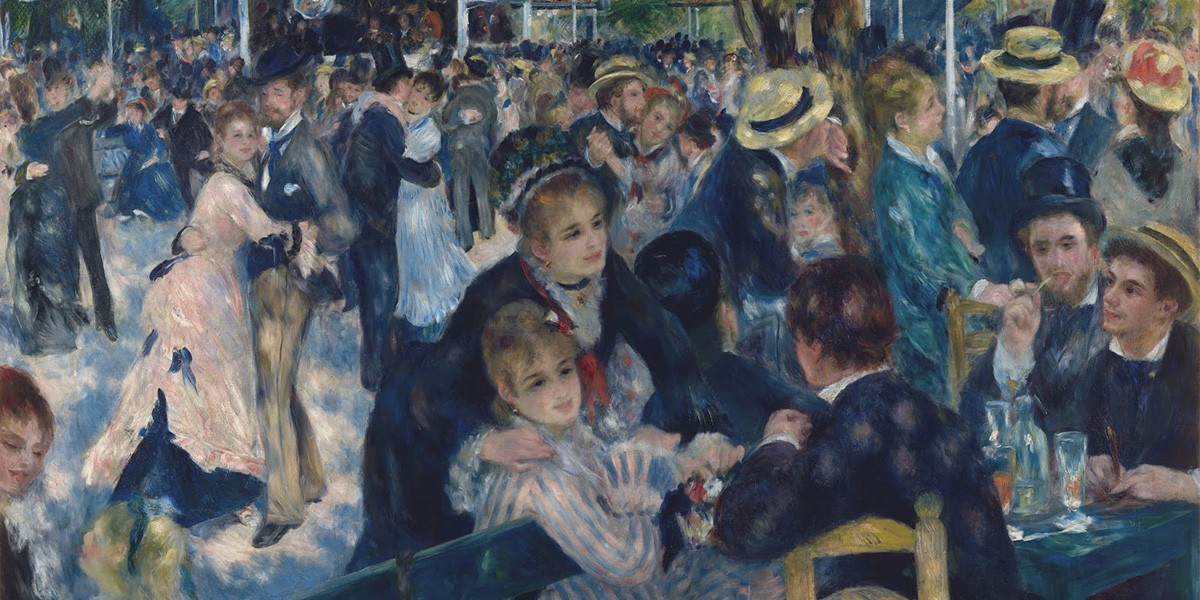Sleep is more than just downtime.

Pierre-Auguste Renoir: Bal du moulin de la Galette (Dance at Le Moulin)
"Gaze at a Renoir painting of nineteenth-century Parisian Life and you will see the extended light. Spilling out of the homes and onto the streets, gas lanterns began bathing entire city districts with illumination. In this moment, the influence of man-made light began its re-engineering of human sleep patterns, and it would only escalate. The nocturnal rhythms of whole societies - not just individuals or single families - became quickly subject to light at night, and so began our advancing march toward later bedtimes."
Matthew Walker. 'Why We Sleep'.
It's time to start fighting back, there is a global sleep-deprivation epidemic, a real medical emergency. Neuroscientist Matthew Walker's astonishing book Why We Sleep lists how sleep-deprivation is a key factor in an array of life-threatening diseases. It is permanent in its effects. And over the last 75 years the number of people in ‘developed’ countries suffering from harmful levels of sleep deprivation has climbed from 8% to 50%.
The problem is a combination of quantity and quality – the latter is relatively easy to fix. Arianna Huffington’s The Sleep Revolution describes how we can start to take sleep seriously, including not using your phone as an alarm clock, and taking steps to make your bedroom a special place.
So here’s the checklist:
-
1) Accept that sleep is important. It’s when you get a lot of stuff done.
-
2) Do what you can to get more of it, at a regular time.
-
3) Make sure your bedroom is an appealing place. Keep it tidy (reports show that sleeping surrounded by clutter means you get less done the next day) and add some beauty.
-
4) Get in the habit of having a digital sunset: no gadgets for an hour or so before bedtime. Both the screens themselves and the addictive material they deliver will follow you into your dreams.
-
5) Use a real alarm clock, that doesn’t light up unless you want it to. Don’t use a phone – it’ll be lurking there all night, ready to pounce in the morning.
-
6) And perhaps read a book before sleeping. The science is strong: reading a (real) book at bedtime can bring a marked improvement to quality of sleep. But choose carefully: Daniel Gilbert, Harvard professor of psychology and author of Stumbling on Happiness, has described Matthew Walker’s book as “a canny pleasure that will have you turning pages well past your bedtime”...
Some encouragement from Punkt.
We recommend you take tech out of your bedroom and get a real alarm clock, the AC 01 is elegant and analogue and can be purchased from our www.punkt.ch. It'll help cover both points 3) and 5).


